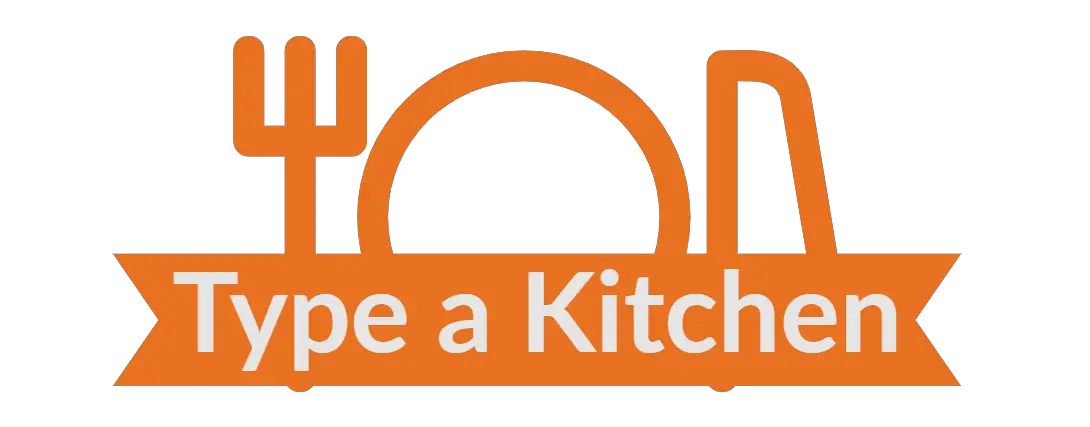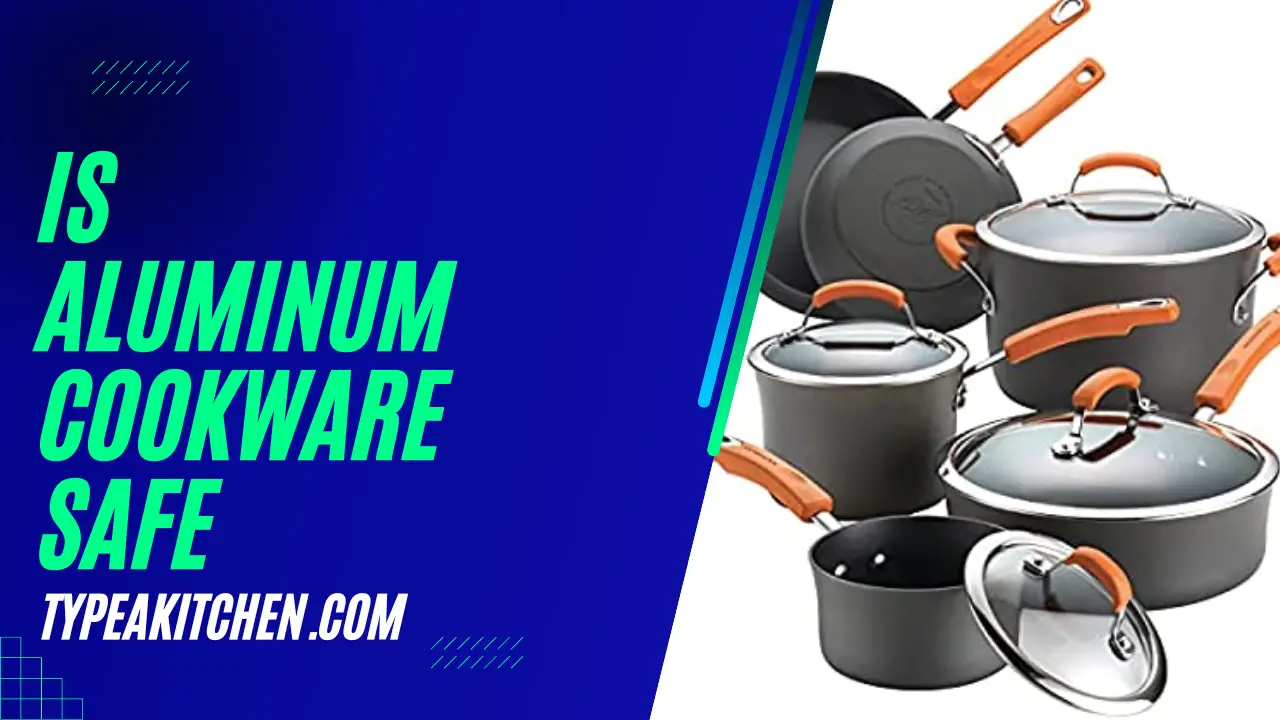Aluminum is a lightweight metal that has a wide variety of applications due to its low cost. In addition to being present in food cans, it is also present in a variety of building materials and utensils.
In recent years, aluminum cookware has been the focus of a significant amount of discussion. Even while it does not offer a significant danger to one’s health, carelessly discarded cookware can be harmful to the environment.
The fact that aluminum does not rust, is low cost, is lightweight, and is easy of cleaning makes it a popular choice for cookware. Cookware made of aluminum is an excellent option for those individuals who are nickel-sensitive due to the presence of nickel in stainless steel cookware.
Is Aluminum Cookware Safe?
The question can be answered in one word: yes. Cookware made of aluminum should not, by any stretch of the imagination, provide a serious risk to one’s health.
Cooking using aluminum cookware poses no health risks to the vast majority of users. However, if the drug or
The following is a list of potential dangers linked with using cookware made of aluminum :
1) Interference with the absorption of drugs Taking medications by mouth may result in a reduction in their efficacy because Al ions block the release of hydrochloric acid by the stomach, which is necessary for dissolving drugs so that they may be absorbed into the bloodstream.
2) Aluminum toxicity can lead to side symptoms such as weight loss, gastrointestinal cramps, skin rashes, mental confusion, and anemia. This can also be a result of the metal’s harmful effects. Although it is not entirely known whether cooking with aluminum results in toxicity, there have been studies that suggest it may play a role in the development of Alzheimer’s disease.
3) Interaction with particular foods Acidic foods like tomato sauce can corrode aluminum cookware over time, which can cause metal ions to seep into meals. This can be avoided by using stainless steel or cast iron cookware. Aluminum that has leached into the environment has been found to enhance the incidence of Alzheimer’s disease in animal models; hence, this is something that should be avoided.
If you already own some aluminum cookware at home that you would want to use (or don’t want to get rid of), here are some safety considerations to keep in mind when using it:
1) Prevent acidic foods from coming into prolonged touch with the cookware by avoiding this scenario. When preparing stews, chilis, or any other meal that can be excessively acidic, a crockpot is the best appliance to use.
2) Never store food in aluminum cookware like roasting pans or muffin tins since the aluminum will seep into the food over time and make it taste metallic.
3) Do not use the foil that is created from recycled aluminum. This type of foil is typically branded as “recycled aluminum foil,” and it has a tendency to have higher levels of aluminum than conventional foil as well as increased rates of corrosion when exposed to high heat.
4) If you want to avoid scratching the surface of your cookware and causing extra metal ions to seep into your meal, try using cooking utensils made out of stainless steel instead of plastic or wood. When stirring acidic meals, it is best to do it with wooden or plastic utensils so as not to scratch the surface of the cooking vessel.
5) If you are concerned about the amount of aluminum in your cookware, you might want to think about switching to ceramic cookware instead, which is also safe and doesn’t pose any risk of leaching. Ceramic cookware, in contrast to aluminum cookware, can withstand high heat without the risk of scuffing or otherwise harming its surface.
6) If you have been taking medications orally for a long time and you want to switch to topical preparations instead, you should talk to your doctor before making the switch. This is because Al ions inhibit the gastric acid secretion that is required for the medication to be absorbed into your body if you take it this way. If you want the medication to be as effective as possible, you should take it orally.
There are a lot of other good options for cookware besides aluminum. If you are concerned about the use of aluminum, investigate your alternatives and select the solution that is most secure for your family.
What is the safest cookware for your health?
Teflon cookware is widely regarded as the most secure, despite the fact that certain of its components have raised safety concerns. The use of plastic or wooden tools on stainless steel can cause the surface to become damaged and scratched, despite the fact that stainless steel itself is a safe material.
Ceramic is another alternative for cookware that does not include any potentially hazardous chemicals. Its sole negative is that it cannot be used in high-heat settings since it is prone to cracking as a result of thermal shock, which is the only circumstance in which it cannot be utilized.
Cooking acidic foods with cookware made of iron has been done for generations; nevertheless, this can result
Cast aluminum has many advantages over other types of cookware, including the ability to distribute heat evenly, not requiring any seasoning, and having a lower cost.
On the other hand, it is not as simple to clean as stainless steel pans, and if you let acidic foods sit in a cast aluminum pot for an extended period of time, some of its surfaces may corrode, which will result in more aluminum ions being released into your food. This can be avoided by not allowing acidic foods to sit in the pot for an extended period of time.
What is safer to cook with stainless steel or aluminum?
Cooking with stainless steel does not pose any health risks. Cooking with aluminum pots is safe, but putting acidic foods in them can cause the surface of the pot to erode and cause more aluminum ions to be released into the food.
What are the disadvantages of aluminum cookware?
Aluminum cookware cannot be cleaned in the dishwasher. Aluminum cookware is susceptible to scuffing and damage, which makes it more difficult to clean than stainless steel cookware. If you handle hot food while holding the exterior of the pot, you run the risk of causing severe burns to yourself.
Because aluminum cookware is incapable of withstanding high temperatures during cooking, the only way to
In the long run, using pots and pans made of aluminum that have been exposed to specific types of salt or acidic components may cause the metal to corrode. This will result in the formation of small holes in the surface, which may have negative effects on your health.
When acidic foods are cooked with metal utensils, the surface of the pots and pans can become damaged, which results in aluminum ions being released into the food. This is another reason why aluminum utensils should not be used for cooking.
What are the effects of Aluminum toxicity?
When there is an excess of aluminum in the body, it builds up in the brain, where it interferes with a variety of key biological processes like the creation of DNA. The neurotoxic effects can cause harm to your neurological system, which, in later life, can increase your risk of developing neurodegenerative diseases like Alzheimer’s. It affects one in every twelve persons all around the world (and 1 out of 9 Americans).
Ingesting aluminum over a prolonged period of time, such as by doing so on a daily basis, has been linked to premature aging and degeneration, which can result in a reduction of the average lifetime by several years.
If you are worried about the health effects of cooking with aluminum, investigate your other options so that
What other kinds of materials are suitable alternatives to aluminum?
Anodized The processing of aluminum removes impurities in order to prevent corrosion, which could cause aluminum ions to be leached into food that is cooked in the metal. Baking with it is completely safe, but you shouldn’t broil or cook with it on the cooktop.
If you are willing to invest in a new set of cookware, enameled cast iron is another choice to consider because it is resistant to high oven temperatures; however, before using it on high heat, you should inspect it carefully to ensure that it is free of chips. Cast iron that has not been enameled cannot withstand temperatures above a certain point because it is too fragile.
On the other hand, enameled cast iron skillets are formed of cast iron but are coated with enamel glass. However, the material is still heavy (although lighter than conventional cast iron), it takes a long time to heat up, and it can be more expensive than regular cast iron because of the enamel coating that makes them robust and safe to use for a wide variety of applications.
Glass is another material that can be used for cookware provided you don’t mind the fact that it cannot be used in ovens hotter than 500 degrees Fahrenheit since it is prone to exploding when subjected to rapid changes in temperature. Because it does not react with the food even under normal cooking circumstances, it can be used risk-free for the majority of situations.
The fact that stainless steel has a strong corrosion resistance, which makes it suitable for use in dishwashers, explains its high production cost. Although it is incredibly lightweight and sturdy, it is not advised for use on a stovetop on a regular basis because it does not transmit heat very effectively.
What are the alternatives to aluminum cookware?
Cooking meals in your kitchen can be done using utensils made of enameled cast iron, glass, or stainless steel, and all of these materials are excellent for cookware. It’s possible that these types of cookware are more expensive than standard aluminum pots and pans, but they are long-lasting and completely safe for frequent use.
It is not advisable to use utensils made of aluminum since they have the potential to scratch the surface of the pots that are used on the cooktop. This leaves the food more susceptible to being contaminated by aluminum ions when acidic ingredients are used in the cooking process.
The use of stainless steel utensils is preferable since they do not scratch or otherwise damage your pots and
Cast iron cooking tools can scratch your pots and pans and alter the flavor of the food you prepare, but they do not leak aluminum ions into the food they cook.
Exist any further potential choices, if any?
However, you should avoid using toothpicks that have been passed through the aluminum foil because this could potentially contaminate your meal. Aluminum foil is safe to use because it does not come into direct contact with your food.
Bakeware and cookware made of anodized aluminum are suitable for most uses and come highly recommended because they make use of the same technology that is used to purify water and treat medical equipment. Because of this, there is no need to worry about ingesting aluminum when cooking acidic foods because it is not released into the food during the anodization process.
If you are concerned about aluminum ions in your food, it is recommended to adhere to stainless steel, glass, or enameled cast iron when preparing food containers.
Why do restaurants use aluminum pans?
Baking and boiling food in aluminum pans is a common practice in restaurants because of the material’s fast heating and cooling times, low cost, and lightweight nature. Aluminum does not react with food under most cooking conditions, which means that it transfers heat evenly and cooks efficiently.
however, the material has been associated with early-onset Alzheimer’s disease by some scientists (although
Are you concerned about using cookware made of aluminum? Investigate all of your possibilities so that you won’t have to go for less safe cookware for your family when you make your selection! Take care not to use any utensils made of aluminum on your pots and pans; instead, stick to the stainless steel implements that came with your cookware.
You Can Also Read Our Blogs Related to Microwave.
Conclusion:
It is generally considered safe to use aluminum cookware. However, some people may be concerned about the potential for aluminum to leach into food during cooking. While it is true that small amounts of aluminum can be transferred to food from cookware, the amount is usually minimal and is not a cause for concern.
However, if you are concerned about the potential for aluminum leaching, you can use anodized aluminum cookware, which has a protective layer that helps to prevent leaching. Additionally, it is important to properly care for your aluminum cookware by avoiding using harsh abrasives or acidic foods, as this can cause the aluminum to leach into your food.



